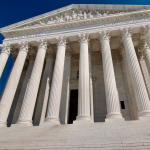As colleges and universities rapidly adopt artificial intelligence (AI) tools and platforms, the American Association of University Professors (AAUP) is calling for a course correction. A new report released this week, “Artificial Intelligence and the Academic Professions,” urges institutions to adopt workplace policies that center faculty governance, economic security, and student learning conditions as AI technologies become further embedded in higher education operations.
The report is based on survey responses from 500 AAUP members across nearly 200 campuses. It highlights growing faculty concern over the unchecked integration of AI into teaching, research, and administrative tasks—often without faculty input or transparency.
“We have seen a number of tech decisions at my institution that massively impact the teaching and research mission in very negative ways—that apparently no one thought of, because no one consulted the faculty,” one respondent wrote.
According to the survey, 71% of respondents said decisions about AI and educational technology were made solely by administrators, with little or no involvement from faculty, staff, or students. Many institutions have entered partnerships with major AI firms like OpenAI, raising fears of corporatization and loss of academic autonomy.
“People are terrified of the onslaught of uncritical AI narratives and partnerships across many sectors and what it means for the future,” said Britt Paris, chair of the AAUP’s ad hoc Committee on Artificial Intelligence and Academic Professions, and a professor at Rutgers University. “But in talking with higher education workers across the country, we have seen that AI in higher education is barely even functional and tech companies view the sector as a cash cow to exploit.”
Faculty also expressed concern about AI’s effect on teaching quality and labor conditions. Over 60% said AI has made classroom environments worse, and 76% reported a decline in job enthusiasm. Respondents cited increased workloads, surveillance, inequities, and threats to academic freedom as key issues.
AAUP President Todd Wolfson stressed the organization’s commitment to action: “We in higher education labor are dedicated to providing meaningful learning experiences for our students and are willing to fight for it.”
The report outlines a series of recommendations, including establishing faculty-led oversight committees, creating opt-out policies for AI tools, and safeguarding intellectual property and labor rights. Follow-up resources—such as bargaining guides and organizing materials—will be released throughout the year.





















